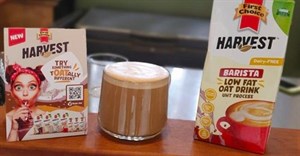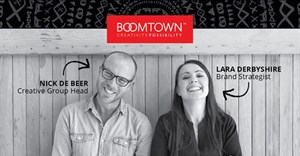Trending
Elections 2024
Jobs
- Sales Consultant Nelspruit
- Copywriter and Content Producer Cape Town
- Marketing Account Executive Johannesburg
- Marketing Manager George
- Senior Digital Marketing Communications Specialist Cape Town
- Marketing Channel Manager George
- Head of Marketing Johannesburg
- Corporate Fundraising Officer Cape Town
- Account Executive Cape Town
- Junior Graphic Designer Germiston
Are you asking the why beyond the why?

A vital starting point is making sure you know your target market. Who is this elusive potential customer? This human being that is going to let your product into their daily lives, perhaps love your product so much that they recommend their friends try it as well, and if you do your homework, become a brand whose usage becomes a family tradition passed down from one generation to the next? Why do they buy what they buy, where do they buy? - Heck, how do they select where they make purchases? Why this one and not that one? Why this price and not that? Why the orange and not the green? Why today and not yesterday? And the questions go on and on.
Step into their shoes
You want to step into their shoes, get into their heads and immerse yourself in their lives, all to try and gain a glimpse of understanding as to why they might choose YOUR product over another. So, amongst other methods, brand strategists conduct focus groups, send out questionnaires, do mystery shopping, even have real conversations in-store. Now, this is nothing new, and the industry is abuzz with the best ways to segment your target audience and reach them more efficiently.
So after all this, we think we know… but do THEY even know?
We take for granted how many of our daily decisions seem almost automatic and effortless and as marketers, we further forget how little knowledge many of us have of own motivations. Most people don't agonise over every single decision (of which we make hundreds if not thousands a day), our brains are wired to help us make quick decisions using the least amount of mental energy. Otherwise, we would be exhausted by the time we got out the shower.
Cognitive bias
These thought processes affect all areas of our lives, but for this article, I'd like to share a few points on how they affect consumer purchase decisions and more importantly how they impact how they think about or rational their decisions/behaviour out loud when asked to articulate their unconscious choices. That is, why you consciously think you did something often isn’t the real subconscious reason you did so. The fact of the matter is that research has shown that many of the thought processes involved in decision making are at a subconscious level of awareness. Only about 0.01% of all the brain’s activity is experienced consciously.
These subconscious processes are cognitive bias. Cognitive biases are unconscious, automatic influences on human judgment and decision making that reliably produce reasoning errors. So when asked why we made a purchase, we attribute reasons logical to us, when in fact we were influenced by cognitive biases, and our articulation of reasoning is flawed. According to Gigerenzer, G.; Goldstein, D. G. (1996) Cognitive biases enable faster decisions when timeliness is more valuable than accuracy. So, how does this impact marketers and brand strategists? Although we gather valuable information from engaging with a cross-section of consumers to gain insight into their lives and decision drivers, we also need to take a step back and evaluate/consider:
- Are we completely objective when interpreting our gathered information?
- Are our consumers' answers being impacted by cognitive biases?
- When feeding back to our teams and guiding the brand process are we being influenced or are we being objective throughout?
- Are you making quick or lofty deductions from surface level information?
- Have you asked or considered the next level of the why - the why beyond the why?
So, what are some of these common cognitive biases that influence our decision making? Firstly, there are four broad reasons our minds turn to biases:
- When presented with too much information
- When there's not enough meaning
- When we need to act fast
- When trying to figure what we should remember
Below are just some of the many, many biases that we experience without even knowing.
Other biases
Courtesy bias: The tendency to give an opinion that is more socially correct than one's real opinion, to avoid offending anyone.
Mere exposure effect: The tendency to express undue liking for things merely because of familiarity with them.
Distinction bias: The tendency to view two options as more dissimilar when evaluating them simultaneously than when evaluating them separately.
Framing effect: Drawing different conclusions from the same information, depending on how the information is presented.
Ikea effect: The tendency for people to place a disproportionately high value on objects that they partially assembled themselves, such as furniture from Ikea, regardless of the quality of the result.
Illusory truth effect: A tendency to believe that a statement is true if it is easier to process, or if it has been stated multiple times, regardless of its actual veracity. These are specific cases of truthiness.
Decoy effect: Preferences for either option A or B change in favour of option B when option C is presented, which is similar to option B but in no way better.
So, how do you know consumers actually know?
If we keep a check on the above, we can make sure we ask the right questions and get authentic information that leads to powerful insights. Only then can we reach more effective and genuinely resonating solutions that translate into results.
So next time you find yourself at the shops, catch yourself in mid-thought as you reach out to grab that product (that you thought you didn't think much about) and try and trace back your thoughts that brought you there at that moment to that product - why you even considered it at all…
Key takeouts
- Be aware of what biases consumers may be exposed to
- Be aware of your own when evaluating information from consumers
- Understand the cognitive influences at work subconsciously
- Always ask or consider the next level of the why



















